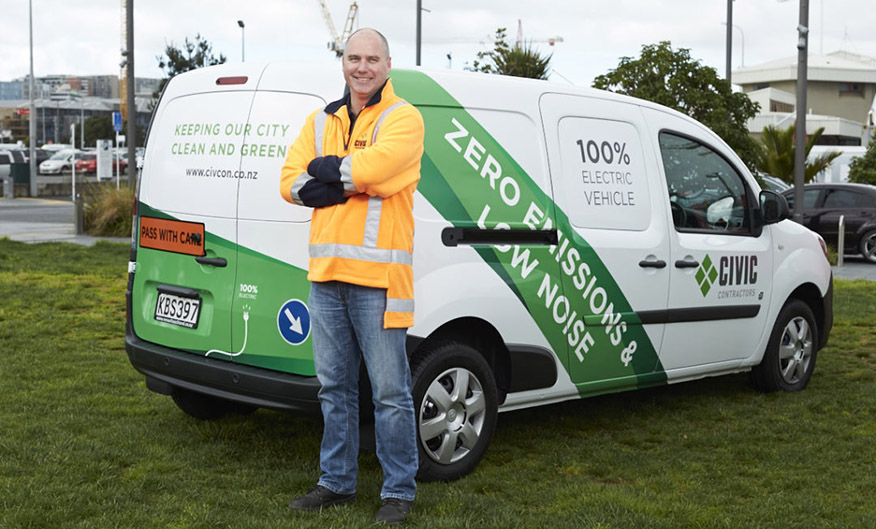Recently, we put in a tender to Hutt City Council Te Awa Kairangi for a waste collection contract. There’s nothing unusual about that — we’re pitching for council work around New Zealand all the time — but the brief for this job was a little bit different.
Hutt City required that the incoming contractor be required to have only fully 100% electric vehicles within this contract. As a New Zealand business investing a huge amount of time and money into environmentally friendly and sustainable business practices, we’re impressed with the council’s forward thinking when it comes to this tender. From what we can see, this is a first in Aotearoa, and a step in the right direction of making environmental outcomes a high priority in the waste game. Without this type of move from Councils to require (and fund) electric vehicles and other environmental options, we’ll never achieve the Government’s intention for New Zealand to achieve net zero emissions by 2050.
For Civic, Hutt City’s mandate wouldn’t be a problem. We are able to hit the ground running and start the job with 97 per cent EVs tomorrow. And that would save 82.3 metric tonnes of CO2 emissions in 12 months. But there need to be incentives for all New Zealand businesses to reduce their impact on the environment and greater collaboration across all industries, not just ours. We want to see more public education around climate issues, greater leadership from councils in terms of investment in this space, commitment to environmentally friendly equipment, methodologies and innovations, and more accountability when it comes to reporting of carbon emissions. That way, environmental solutions will become a key factor in all procurement tenders and the outcome, eventually, will be a carbon-zero and climate-resilient Aotearoa.

